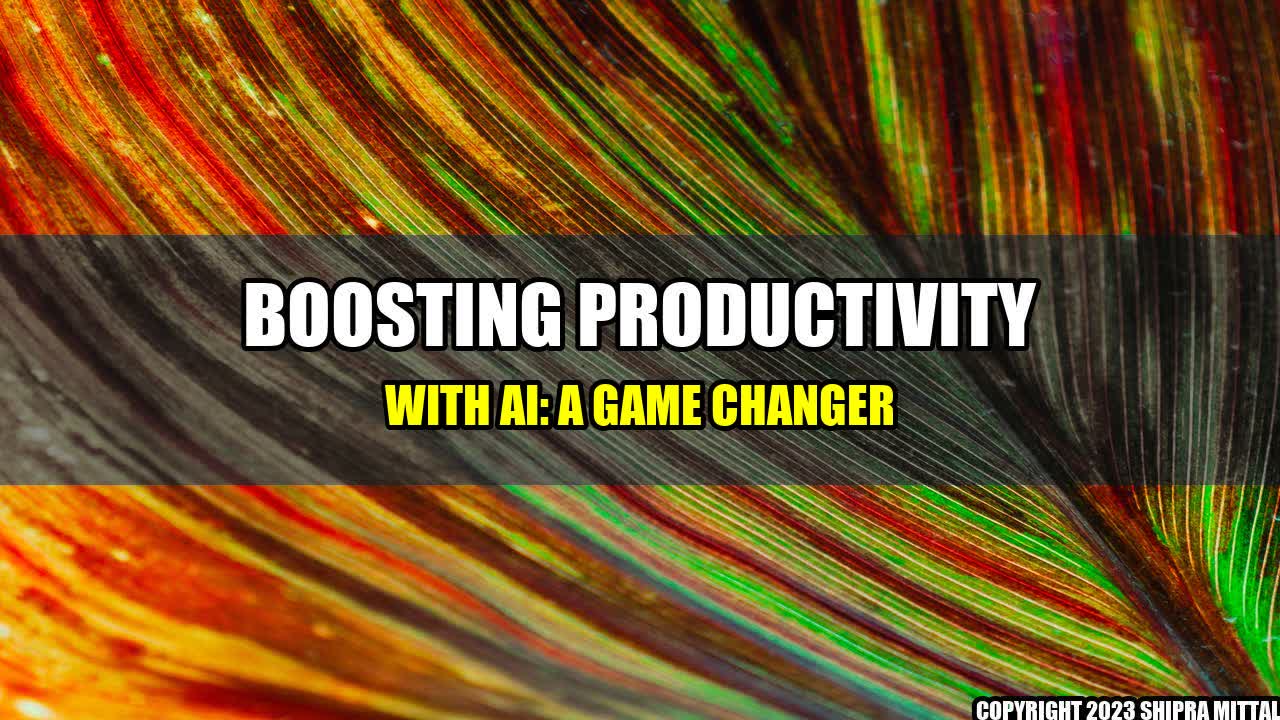Can you imagine a world where repetitive tasks are automated, efficiency is increased and errors are reduced? Well, that world is already here, and it's called Artificial Intelligence (AI). AI is transforming the way we work by offering unique solutions to everyday business problems. From chatbots to recommendation engines, AI is everywhere now. But what about its impact on productivity? Is AI making our jobs easier or harder?
Let's start with a story. Meet John, a project manager at a construction company. John's job involves a lot of paperwork, coordination and communication with contractors. It's a challenging job, but he enjoys it. However, one day, John was assigned a new project that required him to juggle multiple tasks simultaneously. He felt overwhelmed by the workload and couldn't keep up with the deadlines. He wished he had an assistant to help him with the mundane tasks such as scheduling appointments, sending reminders, and updating budgets.
That's when AI came in. John's company had recently adopted an AI-powered project management tool that automated all the administrative tasks that he hated. The tool helped him prioritize tasks, set deadlines and track progress efficiently. It reduced his workload by 30%, giving him more time to focus on the more strategic aspects of his job. AI helped him increase his productivity, reduce stress and stay on top of his game.

AI's Impact on Productivity
Here are some quantifiable examples of how AI is boosting productivity in various industries:
- Healthcare: AI-enabled applications are helping doctors diagnose diseases faster and more accurately, reducing diagnostic errors by up to 85%. They are also automating routine tasks such as appointment scheduling and prescription refills, freeing up doctors' time.
- Retail: AI-powered chatbots and recommendation engines are improving customer service and increasing sales. Chatbots can handle customer queries round the clock, reducing response time by 90%. Recommendation engines are also driving sales by suggesting products based on customer preferences.
- Manufacturing: AI is transforming the manufacturing industry by automating repetitive tasks such as quality control, assembly line monitoring and predictive maintenance, reducing errors and improving efficiency. It's estimated that AI could boost manufacturing productivity by up to 45% by 2025.
- Finance: AI is helping banks and financial institutions to streamline their operations and reduce risks. Chatbots are handling customer queries, fraud detection is becoming more accurate, and investment decisions are being based on predictive analytics.
Conclusion: AI is a Game Changer
AI is not a threat to jobs, it's a game changer. Here are three key takeaways:
- AI is helping us automate repetitive tasks, reduce errors and improve efficiency, which translates into more productive workdays.
- AI is freeing up time for workers, allowing them to focus on more strategic, creative and fulfilling aspects of their jobs.
- AI is creating new job opportunities and enabling workers to acquire new skills and learn faster.

Akash Mittal Tech Article
Share on Twitter Share on LinkedIn